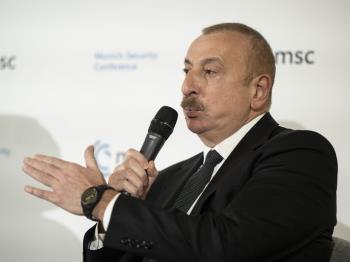Alwaght-Brazilian President Dilma Rousseff was on Thursday suspended from office after the Senate voted to put her on trial for breaking budget laws in a historic decision brought on by a deep recession and a corruption scandal.
Rousseff, in office since 2011, will be replaced by Vice President Michel Temer, for the duration of a Senate trial that could take up to six months.
Rousseff, speaking shortly before she left Brasilia's Planalto presidential palace, said was notified of her suspension. She didn't mince words as she began the fight of her political life.
"I may have made mistakes but I did not commit any crime," Rousseff said in an angry address, calling the impeachment "fraudulent" and "a coup." The leftist leader, 68, was flanked by dozens of ministers who were leaving with her administration.
"I never imagined that it would be necessary to fight once again against a coup in this country," Rousseff said, in a reference to her youth fighting Brazil's military dictatorship.
Her suspension came hours after the Senate voted 55-22 to put her on trial, a decision that ended more than 13 years of rule by the left-wing Workers Party.
The party rose from Brazil's labor movement and helped pull millions of people out of poverty before seeing many of its leaders tainted by corruption investigations.
Rousseff, an economist and former member of a Marxist guerrilla group who was the country's first woman president, is unlikely to be acquitted in her trial.
It took Brazil's Senate about 20 hours of debate to reach a decisive result early Thursday: The country's first female president must step aside while an impeachment trial against her gets underway.
The political crisis has deepened Brazil's recession and comes at a time when Brazil hoped to be shining on the world stage as it prepares to host the Olympic Games in Rio de Janeiro in August.
The multiple crises have left the country divided between those blaming the suspended President and those loyal to the Workers' Party, whose transformative social programs have lifted tens of millions of people from poverty.
There are worries that the tense political situation may spark protests that could turn violent after anti-impeachment protesters blocked roads in several cities earlier in the wake.



























